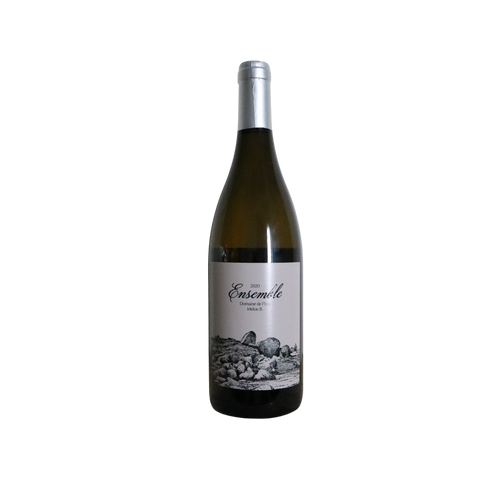
2020 Domaine de L'écu "Ensemble" Melon de Bourgogne, Loire Valley, France
ABOUT THIS WINE
Made from 100% Melon de Bourgogne and aged 10 months on the lees, Ensemble opens with citrus, smoke, and white flowers on the nose and is classically flinty and dry, with green apple and lemon zest, seaside brine and saline, finishing with mouth-watering acidity.
ABOUT THIS PRODUCER
Among the prestigious domaines of the Loire, Domaine de l’Ecu stands apart. Not just a historic property, it’s a pioneering force whose adoption of natural viticulture, terroir-centric bottlings, and extended lees aging have transformed the perception of the Muscadet appellation.
Fred Niger, the dynamic force steering the domaine's helm, continues to uphold the traditions of excellence while innovating and expanding in remarkable ways. Both in the vineyards and the cellar, he is deeply committed to working in tandem with nature, always looking to explore the exchange of energy between vessel and wine and eventually, between wine and drinker.
Much of the Muscadet renaissance owes its emergence to Domaine de l'Ecu and a select group of other domaines. Three pivotal factors have contributed to this shift:
1. A pioneering commitment to organic viticulture, dating back to when this practice was still gaining momentum. The vineyards of Domaine de l'Ecu have been certified organic by Ecocert for over 40 years and biodynamic by Demeter for over 20 years.
2. A strong belief in the unique terroirs of Muscadet led to vinification and bottling based on soil type, rather than appellation blends. This resulted in the creation of the famed terroir wines from the subsoils of Orthogneiss and Granite.
3. A departure from conventional Muscadet production through extended sur-lie ageing (15-18 months) that imparts a layered complexity and texture which sets Domaine de l'Ecu's wines apart.
These distinctions, along with several non-negotiable "house rules"—including biodiversity in the vineyards, low yields, hand harvesting, indigenous yeast fermentation, gravity-only handling of the must, and minimal sulfur use—have led some Loire cognoscenti to argue that Domaine de l'Ecu should be a standalone appellation.
